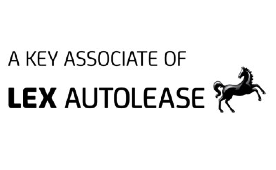What topic has been dominating the motoring news recently the UK Government has announced to ban petrol and diesel cars completely by 2040 to tackle air pollution across the UK.
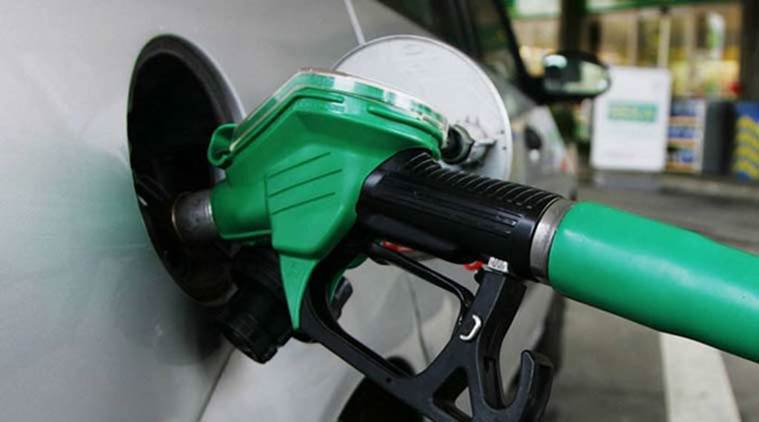
WHAT IS IT?
Under the Governments new wider plan, the UK is to ban all new petrol/diesel cars and vans by 2040 due to poor air quality and illegal levels of harmful pollutant nitrogen dioxide, a form of the nitrogen oxide pollutants emitted by vehicles. The ban excludes hybrid vehicles as it comes with combine petrol and electric motors.
Based on 2016 registration details in our news post, alternate fuelled vehicles including electric and hybrids shared a market of 3.3%, whereas in 2015 this was down to 2.8%.
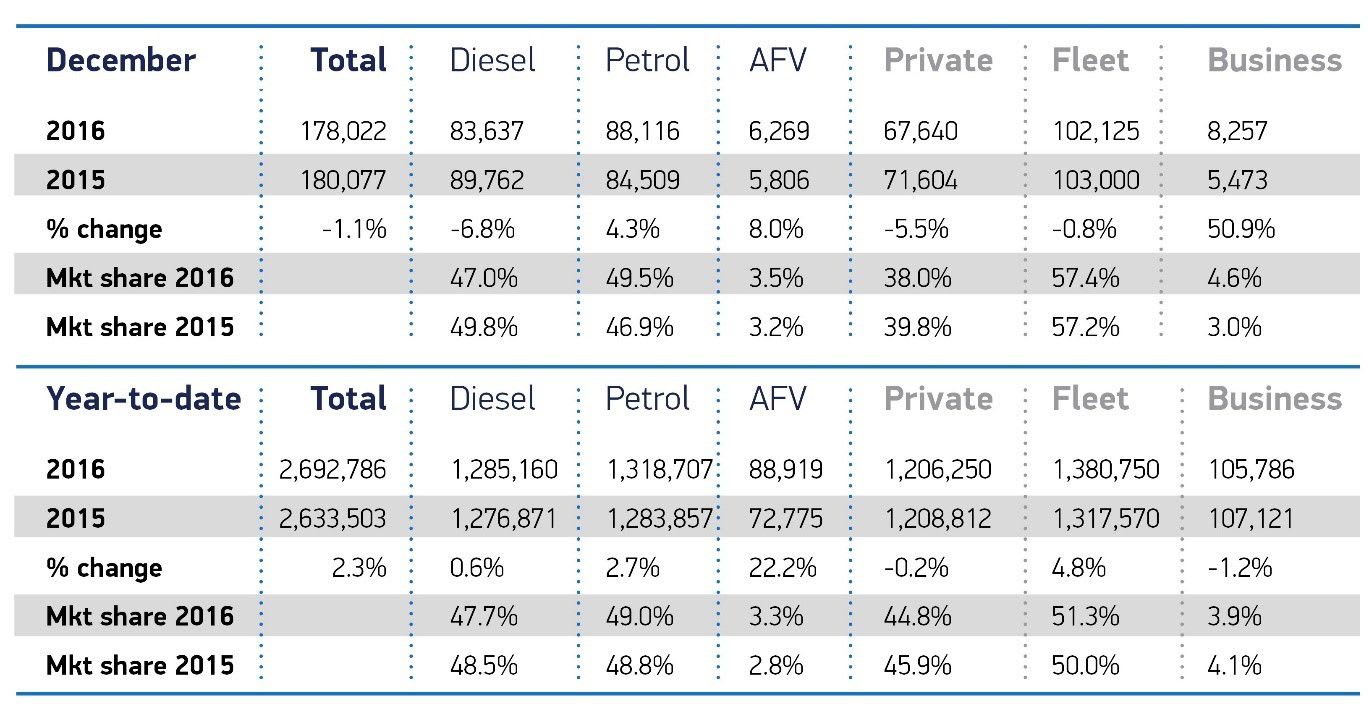
Comparing new car registration between 2010 to 2016, alternate fuel vehicles are growing each year but are still remaining dramatically less popular than petrol & diesels.
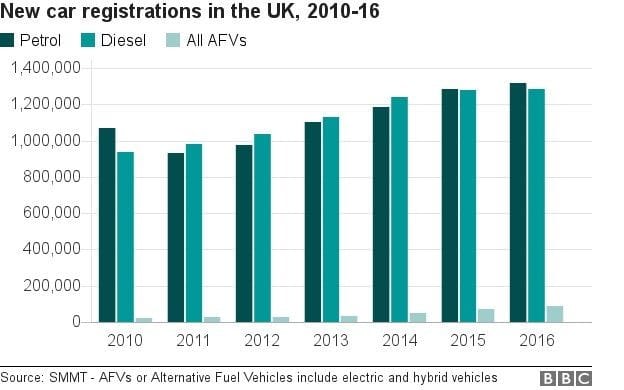
Do you know?
France is also going to end sales of petrol and diesel vehicles by 2040 under the Paris climate accord - Emmanuel Macrons government has announced.
At the beginning of the month, Volvo announced to go all electric by 2019 - meaning each Volvo will have an electric motor to end of the solely combustion engine powered car, said Mr Samuelsson, President and Chief Executive of Volvo Cars.
Air pollution is not a new issue and the Government & scientists have been researching and finalising the right solution for the future climate and public health as well. Based on the latest reports, poor air quality poses the largest risk to public health in the UK and costing £2.7 billion to the economy.
The strategy comes among warnings that the UKs high level of air pollution could be responsible for 40,000 premature deaths a year.
The below data showing local authorities with highest forecast nitrogen dioxide levels, 2017:
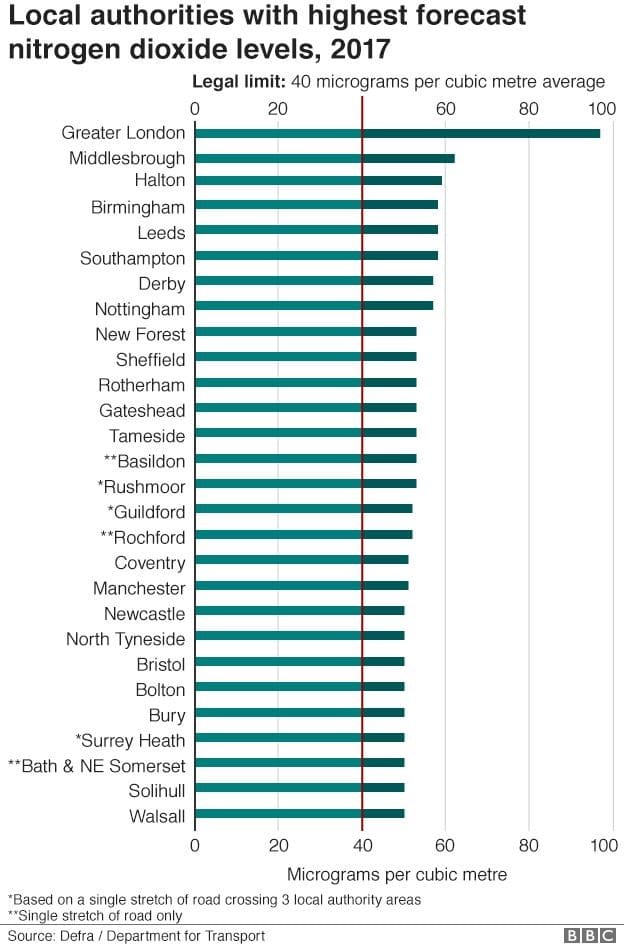
HOW WILL IT WORK?
We have already seen and experienced having buses with greener engines on the roads and London taxis are also hoping to trial this. The driving transport report includes an air quality grant or councils and a green bus fund for low carbon vehicles. As well as £1.2 billion for cycling/walking and £100 million to help air quality on the roads.
Other changes for the future include:
- Changing road layouts
- Reprogramming traffic lights
- New changes to bus and public transport
- Altering features of roundabouts and speed humps
The Government also proposed introducing more clean air zones across the UK and for London with a diesel scrappage scheme potentially on the list.
Auto express mentioned in their news covering the item: Chargemaster also pointed out that most charging takes place at home. "We see around 100,000 home charging sessions per week, compared to 5,000 public charging sessions." However, for those drivers without access to home charging, Chargemaster says it's already rolling out 25 rapid charging stations per month and expects this to increase in the future."
Experts have commented on the future diesel ban:
Many independent news items have warned experts of Air pollution is the tobacco of the 21st century . Long term thinking is to attempt to minimise air pollution as much as possible for the future. What do you think of the petrol and diesel car sales ban? Are you thinking about going green? Take a look at the electric and hybrid cars on lease.








